Filter by

The anxious mind :an investigation into the varieties and virtues of anxiety
An empirically informed, philosophical account of the nature of anxiety and its value for agency, virtue, and decision making.OCLC-licensed vendor bibliographic record.
- Edition
- -
- ISBN/ISSN
- 9780262345491
- Collation
- 1 online resource (viii, 250 pages) :illustrations
- Series Title
- -
- Call Number
- -
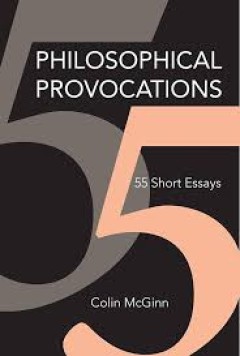
Philosophical provocations :55 short essays
Pithy, direct, and bold: essays that propose new ways to think about old problems, spanning a range of philosophical topics.OCLC-licensed vendor bibliographic record.
- Edition
- -
- ISBN/ISSN
- 9780262340090
- Collation
- 1 online resource (viii, 317 pages)
- Series Title
- -
- Call Number
- -
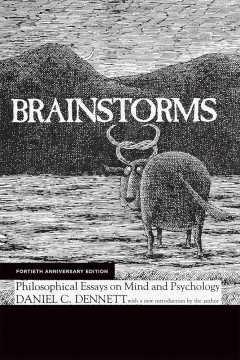
Brainstorms :philosophical essays on mind and psychology
When Brainstorms was published in 1978, the interdisciplinary field of cognitive science was just emerging. Daniel Dennett was a young scholar who wanted to get philosophers out of their armchairs -- and into conversations with psychologists, linguists, computer scientists. This collection of seventeen essays by Dennett offers a comprehensive theory of mind, encompassing traditional issues of c…
- Edition
- 40th Anniversary edition.
- ISBN/ISSN
- 9780262343725
- Collation
- 1 online resource
- Series Title
- -
- Call Number
- -
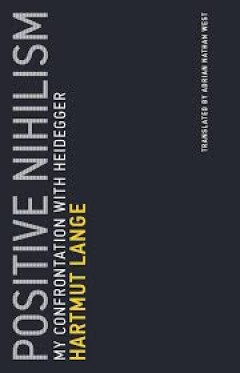
Positive nihilism :my confrontation with Heidegger
A German writer's aphoristic, poetic, and difficult reflections on Heidegger's Being and Time.OCLC-licensed vendor bibliographic record.
- Edition
- -
- ISBN/ISSN
- 9780262342773
- Collation
- 1 online resource (ix, 81 pages)
- Series Title
- -
- Call Number
- -

Enlivenment :toward a poetics for the Anthropocene
A new understanding of the Anthropocene that is based on mutual transformation with nature rather than control over nature. We have been told that we are living in the Anthropocene, a geological era shaped by humans rather than by nature. In Enlivenment , German philosopher Andreas Weber presents an alternative understanding of our relationship with nature, arguing not that humans control natur…
- Edition
- -
- ISBN/ISSN
- 9780262352277
- Collation
- 1 online resource (208 pages).
- Series Title
- -
- Call Number
- -
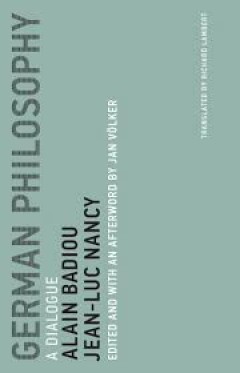
German philosophy :a dialogue
Two eminent French philosophers discuss German philosophy--including the legacy of Kant, Hegel, Nietzsche, Adorno, Fichte, Marx, and Heidegger--from a French perspective.OCLC-licensed vendor bibliographic record.
- Edition
- -
- ISBN/ISSN
- 9780262348355
- Collation
- 1 online resource.
- Series Title
- -
- Call Number
- -
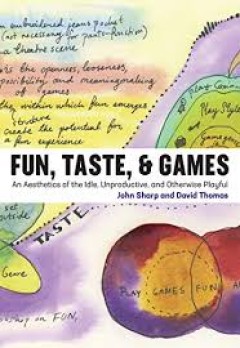
Fun, taste, & games :an aesthetics of the idle, unproductive, and otherwise p…
Reclaiming fun as a meaningful concept for understanding games and play. "Fun" is somewhat ambiguous. If something is fun, is it pleasant Entertaining Silly A way to trick students into learning Fun also has baggage--it seems inconsequential, embarrassing, child's play. In Fun, Taste, & Games , John Sharp and David Thomas reclaim fun as a productive and meaningful tool for understanding and app…
- Edition
- -
- ISBN/ISSN
- 9780262351249
- Collation
- 1 online resource (xiv, 239 pages) :illustrations.
- Series Title
- -
- Call Number
- -
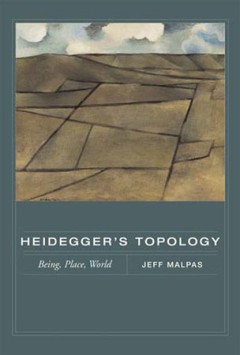
Heidegger's topology : being, place, world
This groundbreaking inquiry into the centrality of place in Martin Heidegger's thinking offers not only an illuminating reading of Heidegger's thought but a detailed investigation into the way in which the concept of place relates to core philosophical issues. In Heidegger's Topology, Jeff Malpas argues that an engagement with place, explicit in Heidegger's later work, informs Heidegger's thoug…
- Edition
- -
- ISBN/ISSN
- 9780262278997
- Collation
- 1 online resource (x, 413 pages)
- Series Title
- -
- Call Number
- 100 MAL h
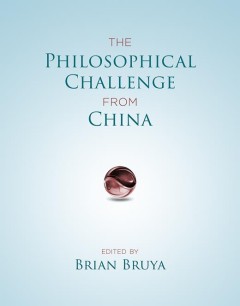
The philosophical challenge from China
Rigorously argued and meticulously researched, an investigation of current topics in philosophy that is informed by the Chinese philosophical tradition.OCLC-licensed vendor bibliographic record.
- Edition
- -
- ISBN/ISSN
- 9780262323628
- Collation
- 1 online resource (xxxi, 393 pages)
- Series Title
- -
- Call Number
- -
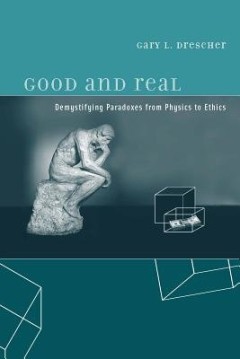
Good and real :demystifying paradoxes from physics to ethics
"A Bradford book."Examining a series of provocative paradoxes about consciousness, choice, ethics, and other topics, Good and Real tries to reconcile a purely mechanical view of the universe with key aspects of our subjective impressions of our own existence.OCLC-licensed vendor bibliographic record.
- Edition
- -
- ISBN/ISSN
- 9780262271943
- Collation
- 1 online resource (xiv, 347 pages) : illustrations
- Series Title
- -
- Call Number
- -
 Computer Science, Information & General Works
Computer Science, Information & General Works  Philosophy & Psychology
Philosophy & Psychology  Religion
Religion  Social Sciences
Social Sciences  Language
Language  Pure Science
Pure Science  Applied Sciences
Applied Sciences  Art & Recreation
Art & Recreation  Literature
Literature  History & Geography
History & Geography